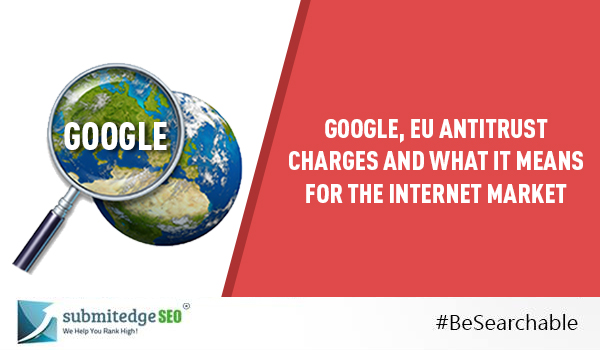Connect with us
Recent Posts
-
Google, EU Antitrust Charges and What It Means for the Internet Market
A famous movie dialog goes “With power comes responsibility”. When you have the power to change the dynamics of a market by effecting how consumers conduct search queries online, the business of power gets serious. The internet is just the world on a virtual platform and more magnified at that. Speaking about the online realm, it is imperative to veer the discussion to a company that has rules the online world. Google has single handedly managed to acquire a huge share and touch lives with its many services from search platform to the largest mobile operating system today. With such a magnitude of power the responsibilities swells just as much. In this scenario, it is inevitable to face a slip or two in policy and Google’s slip has come in the form of the EU Antitrust Case against the company.
The European Union has extended its five year investigation of the search giant. This news comes with the EU’s charge against Google for more prominently displaying their own services over their competitors. Considering that Google manages 90% of traffic in the EU, this completely eliminates the space for fair competition. If EU’s antitrust charges are proved, Google would have to shell out a hefty legal price along with its business practices in the whole of Europe.
This has definitely brought in a number of changes in how Google positions itself. For instance, a recent blog post by Google has detailed the importance and dynamics of the healthy competition in the market. The company has tried to downplay its position by presenting graphs and figures that have attracted correction and criticism. The Guardian corrected Google’s claim that only 10% of traffic is from the search giant when in fact traffic from other sources was broadly the same as Google’s referral. Yelp was another company referenced in the Google blog post where the figures stated were 40% of traffic from mobile apps. Yelp clarified that it was searches and not traffic that were stated to be 40%.
So what is this international situation going to do for Google? It is to be noted that history repeats itself. A similar antitrust case against Microsoft redefined its position in the market. The operating system giant was at a point where its dominance was being continuously eroded by the changes in consumer behavior and shift in the market dynamics for OS/PC.
This may be the exact scenario that Google finds itself in. The virtual world may be at the edge of transcending into a space buzzing with innovation and new technology The EU antitrust charges only strengthen the notion of Google’s place in the online market. The mobile market is changing rapidly and services like Facebook and many others have made reduced Google’s relevance to the internet space. Though the tech giant’s monopoly is intact, it has to transform itself to adapt to a world where it is less dominant as well as less necessary. In such a scenario, expecting the rise in innovative tech and ideas is a thing to look forward to.
Recent Posts
-
What are Top 2020 SEO Trends...
1.The ERA Of VOICE SEARCH Hello, 2020! Long gone are the days when we used to head over to the search engines on our desktops and
Read More -
Why Is SEO Super-Duper...
The year’s 2019! We have long laid our footsteps in this digital world. Did you know that more than 4 billion people al
Read More -
National SEO Services –...
Introduction about National SEO Services A National SEO service provider uses search engine optimization practice to enhance the
Read More







